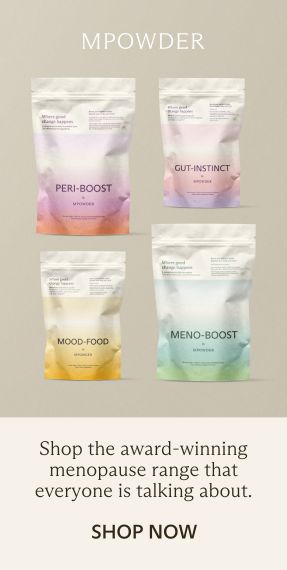Exhaustion in menopause feels distinctly different to tiredness. It is a bone-deep fatigue—where getting through the day feels harder than it should. If this sounds familiar, you’re not alone. One of the most reported symptoms during perimenopause and beyond is relentless tiredness. Around 60% of us will experience it at some point in our menopause transition. But the good news? There is much we can do to address it; it just requires a little listening in and perhaps the swapping out of habits and practices that no longer serve us well.
Why does menopause drain our energy?
Menopause affects nearly every system in the body, and several changes combine to impact energy:
- Lower oestrogen and progesterone can disrupt sleep and increase inflammation
- Cortisol spikes due to stress and hormonal shifts can lead to chronic fatigue
- Thyroid function, blood sugar regulation, and iron levels can all fluctuate in midlife
- Many women experience sleep disruption and night sweats, compounding tiredness.
Let’s look at the most effective ways to take action.
Incorporate weight-bearing exercise
- Movement is essential—but not just any kind. Weight-bearing and resistance exercises help regulate energy at a hormonal level
- These activities stimulate mitochondrial function (your cells' energy producers)[¹]
- They improve insulin sensitivity and support lean muscle mass, which declines in menopause
- They can also improve sleep quality and lower cortisol
- Aim for 2–3 sessions a week of bodyweight training, resistance bands, or weightlifting. Short sessions (20–30 mins) can be incredibly effective.
Prioritise protein at every meal
- Protein is a key player in energy production and muscle preservation—especially in menopause when sarcopenia (muscle loss) can accelerate
- Studies show women over 40 need more protein to maintain muscle and support metabolic function[²]
- Amino acids also help synthesise neurotransmitters like dopamine, which influence energy and focus
- Try to include 20–30g of protein per meal, from sources like eggs, lentils, tofu, fish, and high-quality powders. Our PERI-BOOST blend includes pea protein isolate along with essential vitamins and adaptogens to support this need.
Get serious about sleep
- Sleep disruption is a hallmark of menopause. Oestrogen supports melatonin production and helps regulate body temperature—without it, many women wake up hot, restless, and wired
- Poor sleep increases inflammation, impairs glucose tolerance, and elevates cortisol, making exhaustion worse
- Research shows that even mild sleep loss reduces mitochondrial energy output and muscle function[³]
- Support sleep by keeping a consistent bedtime, avoiding blue light in the evening, and considering supportive botanicals
- Our Mood Food blend includes lemon balm, ashwagandha, and magnesium bisglycinate—all shown to improve sleep onset and quality naturally.
Stay hydrated—properly
- Dehydration can masquerade as fatigue—and it’s more common in menopause than we realise. Hormonal shifts affect kidney function and thirst cues, increasing the risk of low-grade dehydration
- Just 1–2% fluid loss can impair concentration, mood, and physical performance[⁴]
- Dehydration also worsens joint pain and temperature regulation
- Aim for at least 1.5–2L of water per day, more if exercising. Add a pinch of Himalayan salt or a natural electrolyte if you sweat frequently or struggle with light-headedness.
Use botanical support to rebalance energy
Several botanicals have been studied for their ability to fight fatigue and improve stamina—without overstimulating the nervous system. Key ingredients in MPOWDER blends include:
- Ashwagandha (KSM-66®) – Shown to reduce fatigue, improve resilience, and boost VO2 max in active women[⁵]. Found in MOOD-FOOD and MENO-BOOST.
- Maca root – A natural energiser that supports hormonal balance and libido, with adaptogenic properties. Found in MENO-BOOST.
- Lucuma – Rich in iron and antioxidants, supporting red blood cell production and energy metabolism. Found in both PERI-BOOST and MENO-BOOST.
- Magnesium malate – A form of magnesium bound to malic acid, directly involved in the Krebs cycle (energy production). Found in both PERI-BOOST and MENO-BOOST.
As always, check with your health practitioner before starting any supplement—particularly if you are on medication or managing a health condition.
Menopause doesn’t have to mean running on empty. By tuning into your body’s changing needs—through movement, nourishment, rest, and targeted support—you can reclaim your energy.
Share Twitter Facebook Pinterest

